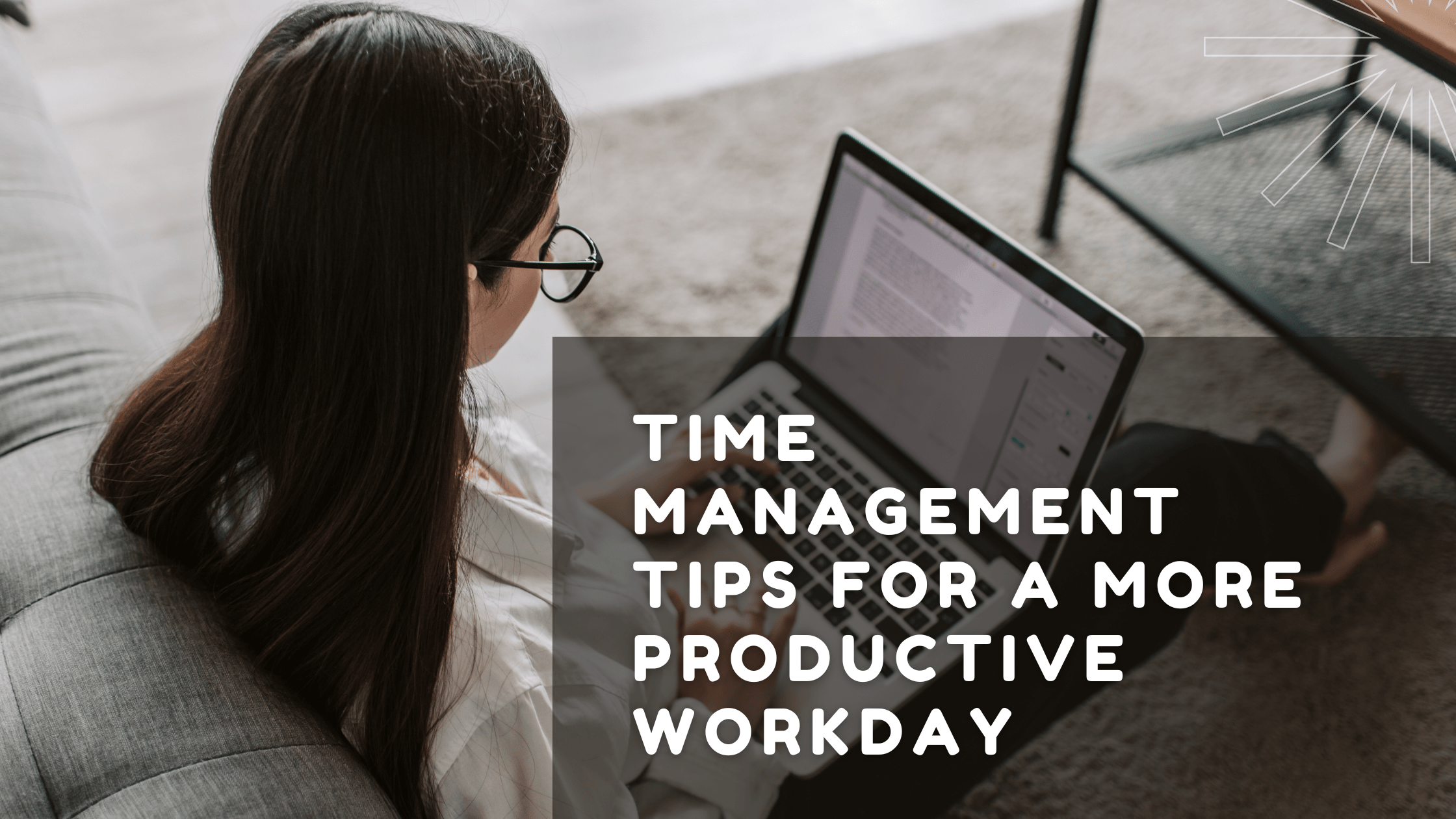
How to Manage Time Effectively | Smart Tips for Better Productivity
Have you ever had the impression that there aren’t nearly enough hours in a day? Everyone has experienced that. It’s very simple to feel overburdened and unproductive due to work deadlines, personal obligations, and an endless to-do list. However, be at ease! Being proficient in time management is a skill that can be acquired; it essentially alters one’s working style and may even have personal implications.
To help you improve your productivity and accomplish more in less time, this article will provide you with helpful tips on How to Manage Time Effectively, set priorities for your tasks, and make the most of your time.
Understanding Time Management
Prior to delving into specific tactics, let us examine the fundamentals of time management. This is about making good use of your time, not about packing more into your day. It entails prioritizing tasks and automating less important ones in order to focus on what matters. You can accomplish more in less time with effective time management by concentrating on the tasks at hand. Learning How to Manage Time Effectively helps you accomplish a lot by removing distractions.
Reduced stress: The main factor contributing to workplace stress is an excessive workload. By managing your time well, you can minimize your anxiety and regain control over your workload.
Work-life balance: Increasing your productivity at work allows you to return home on time and spend quality time with your family life without having to feel bad about unfinished business. Mastering How to Manage Time Effectively also ensures you achieve professional goals without compromising personal happiness.
Enhancing your career: Generally speaking, you will be acknowledged and be able to advance in your career if you consistently produce high-quality work on schedule.

Developing Your Time Management Strategy: Tips on How to Manage Time Effectively
Now that you are aware of the advantages, let’s get started! The following are important tactics to incorporate into everyday life if you’re looking for practical ways on How to Manage Time Effectively :
Track Your Time: Raising awareness is the first step toward making improvements. Log your activities in 30-minute increments over the course of a few days. Are you spending excessive amounts of time on social media? Are you drowning in emails? Understanding these time wasters will help you make the necessary adjustments. Many applications are available for tracking time, or you can use a simple pen and notebook.
Set ruthless priorities: Because not all tasks are made equal. Tasks can be categorized as urgent and important, urgent but not important, not urgent but important, or neither urgent nor important by using an Eisenhower Matrix. Next, prioritize the tasks that are urgent and significant, finishing as many of them by delegation or automation, and scheduling or doing away with everything else.
Accept the value of preparation: Don’t wing it! Make a list of everything you need to get done in the first ten to fifteen minutes of the workday, or better yet, the night before. Set aside time in blocks for distinct tasks to account for unforeseen disruptions. After you’ve done that, you’ll have a schedule for the day and a much better chance of maintaining your focus.
Control the Technological Monster: Constant pings and notifications from social media platforms can seriously reduce your work output. Limit the amount of time you give yourself to check your email and turn off your phone. Consider experimenting with website blockers while you’re working intently.
Combine related tasks: It’s untrue to multitask. Instead, collaborate on similar tasks. Take a break from your work to do administrative tasks, answer all of your emails at once, or schedule back-to-back meetings. You become more efficient as a result of reducing mental context switching.
Bring in the Power: Working nonstop may seem to be the best way to get the most done, but it can also quickly result in burnout. Take quick breaks to stretch or decompress, or grab a nutritious snack. You’ll return to your work feeling rejuvenated and renewed.
Learn to Say No: If your plate is already full, it’s acceptable to politely decline additional tasks. Describe the task at hand and offer to assist them afterwards. Never forget that it is always preferable to deliver high-quality work on schedule as opposed to sacrificing quality by taking on more than one can manage.
Establish a dedicated workspace: Whether at home or in the office, having a defined workspace will help you stay much more focused. Keep things tidy and orderly in this area to prevent distractions.
Delegate and automate: Whenever feasible, assign chores to coworkers or simply contract out such work. Technology might also end up being your friend. To free up time for strategic work, apps and tools, such as those available on freelance websites, can help automate a number of boring and repetitive tasks.
Monitor Your Development and Make Changes: Managing your time is a process. Take periodic breaks to assess your progress and make necessary corrections. Is everything really going according to your plan? Do you have any changes in mind? It doesn’t hurt to try different things until you find the time management system that works best for you.
Bonus Advice: Have a growth mindset and believe that you can improve your time management skills. There will inevitably be challenges, if any, but view them as chances to improve your procedure. With consistent effort, you’ll master How to Manage Time Effectively and achieve both personal and professional success.

FAQs on Time Management
Q: I’m a real procrastinator. How do I overcome this?
A : One of the most frequent challenges with time management is procrastination. Here are a few pointers:
Break down large tasks: When faced with a large project, people tend to put it off because they feel overwhelmed. Divide this into manageable steps or smaller tasks to help you move forward and avoid feeling overwhelmed.
Establish realistic deadlines: One is doomed to failure if they set unattainable deadlines. Give a task an accurate time estimate and adjust your schedule appropriately.
Reward yourself: Give yourself a reward for finishing tasks. As you accomplish particular goals, give yourself little incentives.
Use the Pomodoro working style: This involves working for 25 minutes at a time in focused intervals and taking a brief break afterward. With such a methodical approach, one is more likely to adhere to the timetable and refrain from putting things off.
Q: I have problems concentrating. What am I supposed to do in order to improve my concentration?
A. Methods for improving concentration include:
Get rid of the noise: find a peaceful place to work, switch off your phone alert, and inform your coworkers that you need some time to yourself.
Take on your most difficult assignments: Start your most difficult tasks in the morning, when your willpower is strongest.
Move around and take breaks: Taking a brief break from work can help you refocus. Simply get up, take a few steps, or stroll around to decompress.
Try practicing mindfulness meditation: It can help you filter out irrelevant stimuli by teaching your mind to be present, as in the here and now. You can get started right away with free meditation apps.
Q: Which tools and apps in time management can help me?
A: There are a tonne of time management tools available, some of which are paid for. Allow me to present a few to you:
Apps for to-do lists: These are programs made to assist you in creating, arranging, and reviewing the tasks on your list. Todoist, Microsoft To Do, and TickTick are a few examples.
Apps for tracking time: Keep a journal of your activities or use apps like RescueTime or Toggl Track to monitor your time and see where it has gone.
Calendar apps: Use programs like Apple Calendar or Google Calendar to stay organized. For a smooth workflow, these can be readily synchronized with to-do list applications.
Apps for focus: During times of concentration, programs like Freedom or Forest filter distracting websites and applications.
You Can Also Check Out
